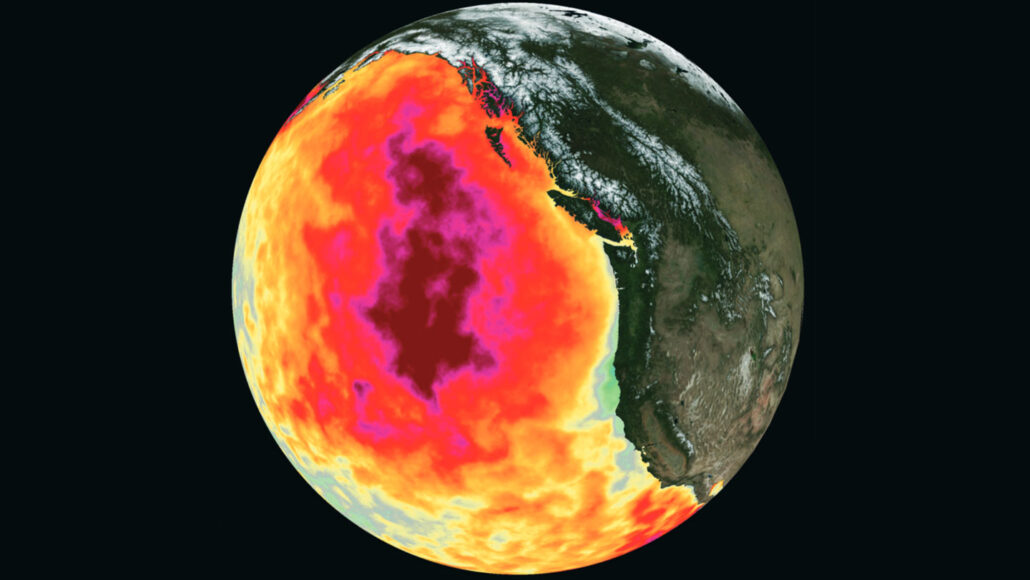Questions for ‘World’s oceans have warmed to a ‘point of no return’

From 2013 to 2016, a mass of sweltering water in the eastern Pacific Ocean — known as the Blob — wreaked havoc on marine ecosystems. This illustration shows how unusually hot the waters were in May 2015. The deepest red represents 3 degrees Celsius above average.
Chelle Gentemann, Charles Thompson and Jeffrey R. Hall/PO.DAAC/JPL